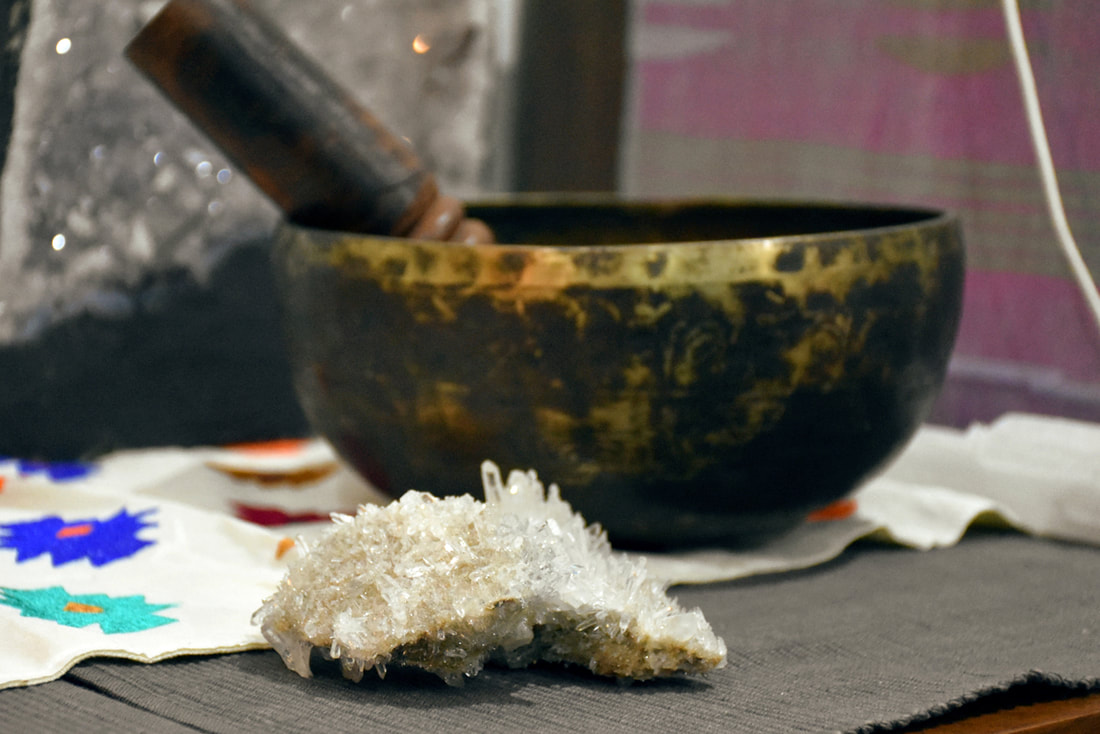| WITH all the health issues sprouting in today’s world, many people decide to depend less on the chemical and synthetic medication and turn towards alternative choices. Believe it or not, hypnotherapy is one of them. In this issue, The BigChilli called upon Kamil Bigda, Clinical and General Hypnotherapist/NLP Master Practitioner and Roshni Srikureja, Clinical and General Hypnotherapist/Reiki Master at Bangkok Hypnotherapy to inquire about hypnotherapy and how it can help improve people’s health today. |
| What is hypnotherapy? Hypnotherapy is a form of complementary therapy that uses a natural yet altered state of mind to bridge a direct communication with our subconscious mind. This fascinating state, often called trance, helps us explore and work with our deepest thoughts, feelings, and values. Could you describe your typical work day? The beauty of being a hypnotherapist is that there are no typical days. Our work day starts by reviewing session notes and healing strategies prepared for our clients. Before each session, we clear our minds with meditation, self-hypnosis or using positive affirmations. We clean the work space so that clients come into a neutral environment without any energetic residues. Our sessions are custom-tailored to individual client needs. After the sessions we often prepare audio recordings with healing suggestions for our clients and follow up on emails and social media. Some days are also dedicated to preparing workshops and seminars on Hypnotherapy and Past Life Regression. How did you get started in this field? My partner and I have always been fascinated with the human minds. We both carry a passion for healing and transforming people’s lives. This desire to better the world later led us to studying Hypnotherapy in one of the top schools in the world and becoming licensed professionals. How do most people enter this profession? Most people start by finding a course in hypnosis and later someone to practice with. Practical skills are a very important step to becoming a qualified professional. Please briefly introduce the founders of the company Kamil Bigda, a founder, was born in Poland and spent most of his life in Hawaii and later Spain and India. Having worked in many professional fields, he possesses a wide range of experience and now resides in Bangkok where he focuses primarily on Hypnotherapy, Coaching, and Past Life Regression workshops. He speaks English, Polish, and Spanish. Roshni Srikureja, a co-founder, is from Bangkok. She used to work in the IT field, and later became a highly recommended energy healer. Currently she’s dedicating her professional time to Reiki and Hypnotherapy. She speaks Thai and English. What qualifications does a hypnotherapist need? Qualified hypnotherapists will have a diploma from a recognized institution that is affiliated with a known Hypnotherapy Board (International Board of Hypnotherapy or American Board of Hypnotherapy, to name a few) and follows a strong code of ethics. They will also have at least 400 hours of theoretical and practical training. Why hypnotherapy? What treatments do you offer in addition to hypnotherapy? Hypnotherapy is natural, non-invasive, and has no side effects, so it became an easy choice. Results can often be achieved within a single session, contrary to other approaches like psychotherapy or conventional counseling. In addition to Hypnotherapy we offer Reiki treatments and Life Coaching (NLP). What is hypnosis healing? Can you explain the process? It has been long known that our minds can heal the body. Although science is still trying to understand how, we already know that under right conditions our minds interpret imagination and suggestions as reality. In Hypnosis we use this phenomenon to trigger an accelerated healing response. | Can hypnosis heal physical pain? If yes, how so? Absolutely. Many forms of pain result from limiting beliefs about ourselves or unresolved events and emotions from the past. In deep hypnosis we can re-frame and heal those, successfully removing the underlying cause. We also teach people how to manage pain, as pain receptors in our body are controlled by brain. I’m sure some people might feel unsure or fear they will have subconscious messages under hypnosis … is that something to be afraid of? What are subconscious messages? While “in” hypnosis (never “under”), most people are completely aware of everything that happens and retain full memory of their experience. Since all hypnosis is self-hypnosis, our subconscious mind cannot accept a suggestion or an idea that’s not ours, or one that could be harmful. These are some of the myths propagated through movies and through stage hypnosis. The only subconscious messages that we give to our clients are the ones that facilitate a positive mindset, speed up healing, create a feeling of safety, comfort, and deep relaxation, and motivate our clients to transform their lives and become their best selves. How do you go about alleviating potential concerns for those thinking about partaking in hypnosis? If you ever drove a car, but could not remember the whole route because your mind was in the auto-pilot mode, you were in hypnosis. Whenever you read a book or watched a movie that was so captivating that you didn’t even notice the surroundings, you hypnotise yourself. In our consultation sessions and periodic workshops, we show people how to experience hypnosis in a safe environment. What treatments do you offer using hypnotherapy? Our treatments include smoking cessation, sleep improvement, a release from stress and anxiety, reducing physical pain, surgery preparation, managing phobias and addictions, past life and natal regression and many more. A full list of services can be found on our website. What does one have to look for in order to make sure they are being treated at a qualified clinic or institution? When looking for a professional clinic it’s important to check credentials and experience of the therapists working there. Do they have a professionally looking website? Any business cards? Are they easy to reach and do they respond in a timely manner? Ask them if they belong to any board of hypnotherapy. This will tell you if they adhere to high standards or not. If you see someone using a pendulum or swinging their watch as it’s often portrayed in movies: run, or come to Bangkok Hypnotherapy instead. Do you recommend self-hypnosis? Absolutely. It’s like going to a spa for the mind. Have you ever undergone hypnosis? Do you remember what it was like? Please explain. Oh yes, we’ve been hypnotised hundreds of times. Each time was different, yet always peaceful and relaxing. Being in a state of hypnosis is a fascinating and often a life changing experience. At least that’s our experience of it. | How long does a session usually last? Most sessions last anywhere from 60 to 90 minutes, depending on the technique used and client’s needs. What are the benefits of hypnosis? Deep relaxation, improved self-esteem, greater clarity, a sense of relief, are only a few. There are countless benefits, really. Who should undergo hypnosis? Why? Anyone interested in self-improvement or removing self-made obstacles to success should experience hypnosis at least once. It can be truly a life changing experience. Is there an age limit as to who can have hypnotherapy? There is no age limit, although sometimes age may impact the ability to hear, see, remember, visualize, or follow directions. We’ve had clients over 75 years old and we’ve work with children as young as seven (under parental supervision of course). Do you recommend hypnotherapy for children? Why or why not? Children are the ones who can benefit from the hypnotherapy the most. Their vivid imagination helps achieve results faster than with adults. Also, their critical voice is still underdeveloped which means there is less resistance to change. Can you break down the costs of hypnotherapy for someone interested in it? We do our best to make sessions affordable. A single session costs only 3,000 baht. Discounted rates are available for people who book several sessions in advance. More information can be found on our website. What is the hardest part of your job? Promoting Hypnotherapy in Thailand. Local culture still operates on a taboo implying that getting a psychological help shows weakness, or that there’s something wrong with us. The opposite is true, taking care of your mind requires real maturity and willingness to adapt to new conditions. Educating people on these subjects can sometimes be challenging. What part of your job that is the most challenging? Dispelling myths about Hypnotherapy. Most rewarding aspect of your job? Being able to witness and facilitate healing and transformation in our clients in a short amount of time, often right in front of our eyes. What advice to you have to give to those thinking of taking up a profession dealing with hypnotherapy? First you need a proper education and lots of practice. Just like you can’t learn a new language in a weekend course, pick a school that offers a comprehensive curriculum with lots of hands-on practice. The one day or weekend courses will only give you a brief overview which isn’t enough to start. Also, it’s important to constantly work on yourself, so that your own insecurities or issues don’t project out in sessions. Many therapists never do this part and end up causing more harm than good. A final word of advice is that once you’re certified, continue educating yourself, learn new techniques, and practice hypnosis as much as possible. What advice do you have for someone interested in having hypnotherapy? Set an intention to heal, book an appointment, and come in with an open mind. www.bangkokhypnotherapy.com |





 RSS Feed
RSS Feed
















